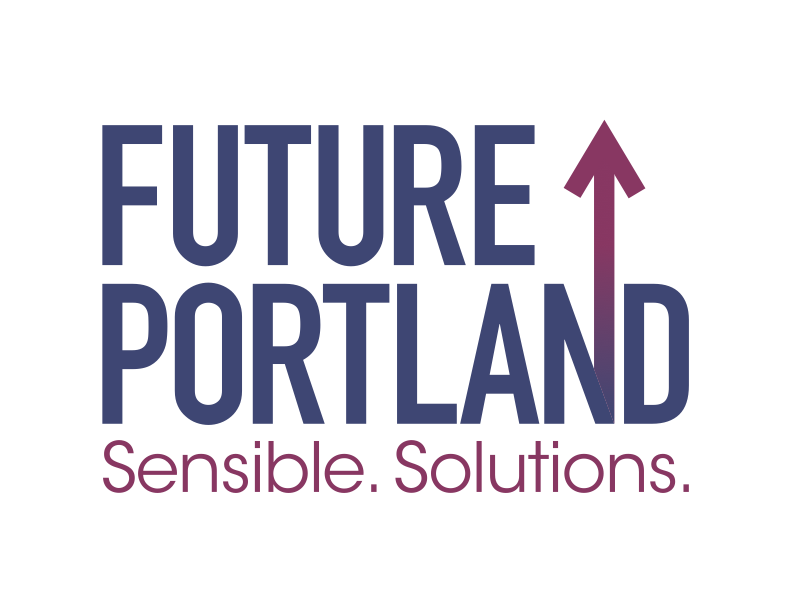What Matters More - Words or Solutions?
It's absurd that we're bickering over the right way to say something instead of working together with real urgency to solve Portland’s devastating houselessness problems. Let’s stop fighting each other, and constructively direct that anger towards the people in charge of problem-solving at Metro, Multnomah County, and Portland City Hall.
For more than two and a half years (a lot longer than that for some neighborhoods), Portland community members have acted in good faith and (appropriately) with empathy toward the homeless. We donate to charities, help those we’ve seen or met on the streets and, most importantly, we voted for significant tax increases to build the housing our leaders told us was required and would fix the problems. And yet, after years of effort and boatloads of money, many parts of our city are still in crisis. And many, many folks (how many we don’t actually know) are still living on the streets in unsafe, unsanitary, and frightening conditions. As a result, it is understandable that we are frustrated — both individually and as a community.
While we have every right to be frustrated, frustration causes many (perhaps most?) of us to lose our ability to articulate our feelings in a productive way. Instead, we vent — resulting in more conflict and confusion. All of us can and should work at improving that. But let’s recognize that this is a “both and” situation: we can both improve how we communicate about houseless-related problems, and we can make progress in solving those problems. We should not let the language issue get in the way of addressing root causes. Instead, our frustration should alert our leaders that they must do better. When the time comes that we see real solutions implemented with measurable and significant improvement our frustration levels will recede. And as our frustration recedes our communication skills (perhaps even on the Internet!) will improve. But to get there our leaders must hold up their end of the bargain — delivering significant and measurable results.
The short- and long-term solutions to cleaning up our streets and keeping both our houseless and housed neighbors safe and healthy will likely need to include sanctioned, supportive camping and parking areas. It will take time for more mental health and addiction centers to be built and staffed, and for housing to be built and/or allocated. Meanwhile, designated areas will provide safe and hygenic options for those who seek to camp in Portland.
As noted earlier, language is getting in the way, and it’s important. We’re fed up with city and county leaders’ trying to pacify the voices screaming absurd objections to proposed solutions. Too often, proposals for designated, service-providing parking/camping areas are called “concentration camps”; common sense actions to move toward solutions become limitations on “freedom” and gathering names for those who need services is called a violation of privacy rights. None of those ring true.
Sanctioned parking and camping areas with support services are clearly not “concentration camps”. Those who use that language may have chosen it for its terrifying and horrific history. But it is incumbent on Portland leaders to note its misuse — and match their efforts with demonstrable action. They must provide hygienic, healthy, safe areas with supportive services.
“Freedom” is not enabling people who are mentally ill to live without health services and in conditions that put their lives in danger.
Joining the Built for Zero full-name database program is not a violation of privacy rights.
A recent New York Times article outlined the city of Houston’s success in making real progress in addressing homelessness. Houston created a central Command Center (which we technically already have) to reduce duplication of services and inconsistencies of supply and demand citywide. Effective inter-agency communication and cooperation, and the command center’s delegation of tasks, resulted in each nonprofit taking on assigned tasks based on demand, expertise and capacity. The new approach also required data gathering to find out what services were needed and for whom, and enabled service-proving nonprofits to share information. As we know, Portland and Multnomah County also contract with a multitude of service-providing nonprofits, yet we repeatedly read interviews with houseless folks who say nobody has ever offered them any actual services or treatment. Additionally, Portland’s leaders preach the ‘housing first’ approach (which Houston uses), but according to the NYT article, respected organizations with real data and experience note that Housing First works only when it is paired with effective treatment and support services. Housing alone is not enough. Yes, housing and support services are expensive — underscoring our responsibility for holding elected leadership accountable for effectively managing agency contracts, ensuring fiduciary responsibility, and demonstrating measurable results.
No other city in the Martin vs. Boise 9th District looks like Portland does right now, despite having larger numbers of people living on the streets. We believe that Portland, Metro and the County are going about this problem in all the wrong ways, with no real solutions in sight. It may be true that many of us are not yet “woke” (change takes time). But “woke” or not, most of us share a desire for a safe, supportive community in which to live, work and play. Perhaps we can put the culture wars on hold in this already progressive liberal mecca (which is what we love about Portland, too!), or at least turn down the volume for a while, and focus our energy on making sure that those in power are held accountable, every day, for their promises.

